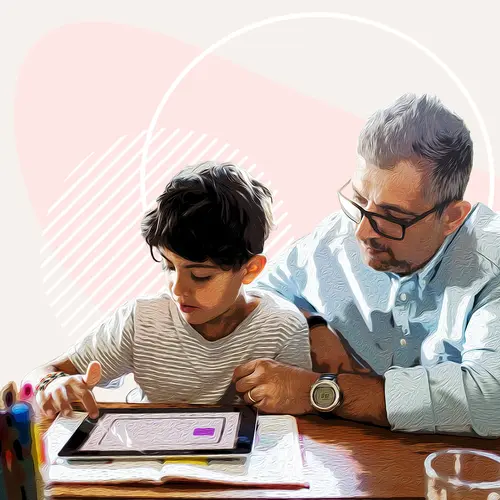When couples experience infertility, medical science presents possible solutions for a potentially successful conception of a baby. Infertility issues can be addressed with Human Chorionic Gonadotropin Hormone (HCG) shots for a woman — otherwise known as trigger shots — and Intrauterine Insemination (IUI). This process will not negatively affect the health of a resulting baby. Here’s what you need to know about infertility, HCG trigger shots, and IUI.
What Is Human Chorionic Gonadotropin Hormone (HCG)?
Human Chorionic Gonadotropin hormone (HCG) is vital for the early stages of pregnancy and remains throughout the pregnancy. The hormone is responsible for ensuring progesterone is produced in a woman’s body to sustain a pregnancy in the first trimester.
Preparing for an HCG Shot
Both parents in waiting will receive medical examinations and tests to ensure their bodies are healthy enough and ready for the procedure.
Before you receive an HCG trigger shot, your gynecologist will give you a transvaginal ultrasound and take hormone blood tests. Your gynecologist will be measuring your ovarian follicles until they are at the right diameter. Once your ovarian follicles show the desired diameter, you will receive your HCG shot. After receiving the HCG injection, it will take your eggs 36 to 42 hours to be in prime condition for fertilization.
The mother in waiting will receive:
- blood tests
- an ultrasound to evaluate her egg supply
- a checkup on her ovarian functions
- a check on the condition and health of her reproductive organs
The father in waiting will receive a physical exam and a semen analysis that studies:
- Sperm count
- Concentration of sperm
- Shape of sperm
- Sperm movement
Why Do I Need an HCG Trigger Shot?
The HCG trigger shot starts your ovulation cycle to achieve the optimal time to conceive a baby. Some of the reasons why women decide to have an HCG trigger shot include:
- inconsistent ovulation
- hormonal abnormalities
- unexplained infertility
Your gynecologist will order a progesterone test around seven days after your prime conception period has taken place. The progesterone test will also confirm whether or not your progesterone levels have increased after you take the HCG trigger shot. If your progesterone levels remain low, you may be prescribed additional oral or vaginal progesterone supplement pills as complementary treatments.
How Does an IUI Procedure Work?
Intrauterine insemination (IUI) is a type of artificial insemination. The procedure aids in treating infertility issues with couples. With this procedure, the sperm go through a process of being concentrated and washed before being placed into your womb to fertilize your eggs. The procedure to the IUI requires less than two minutes to complete with no painful side effects.
Here's an overview of the IUI process:
- The semen sample is prepared. It is washed in a process that ensures the highly active sperm are healthy and in a higher concentration.
- The timing of IUI is everything. When your eggs are at their optimum for fertilization, the IUI will be performed.
- The IUI will be completed within a two-day timeframe.
How Fertilization Occurs
Human sperm can survive for up to five days once it enters a woman’s reproductive tract. Sperm also encounters physical stress immediately upon ejaculation and the contractions of the female tract. During this process, sperm may also suffer oxidative damage. This can occur if there is an overabundance of reactive oxygen species ( ROS) or oxidants present.
As a result, the sperm is no match for the amount of ROS, which prevents the sperm cells from executing an effective antioxidant response.
An antioxidant response is responsible for activating the genes that protect against oxidative stress.
The sperm may also then encounter the woman’s immune system that creates a natural defense against what it interprets as an infection. Under normal conditions, only a few thousand sperm out of millions survive the trip to the woman’s fallopian tubes. One — sometimes more — is victorious in successfully reaching and fertilizing the egg or eggs.
After Fertilization
Fourteen days after your prime conception time has occurred and a fertilization attempt has been made, you will take a pregnancy test. If the test is positive, you and your partner have successfully created a new life. If the pregnancy test is negative, you can begin the process again or seek an alternative fertility method.
Are There Any Side Effects of The HCG Trigger Shot?
Clinical studies reveal that the HCG trigger shot is safe, effective, and will not negatively affect your future baby with any abnormal developments. The possible side effects for the woman receiving the HCG trigger shot occur at a low to extremely low rate and can include:
- Tenderness in your ovaries within a week after the HCG trigger shot
- Increased chance of multiple births, such as twins
- Ovarian cysts
- Ovarian hyperstimulation syndrome, which enlarges the ovaries and affects the abdominal cavity as it collects the excess fluid from the ovaries
- Blood clots
Some of the more serious health risks and side effects occur at a low to extremely low rate. Consult with your gynecologist about any of your concerns with side effects before receiving the HCG trigger shot.

